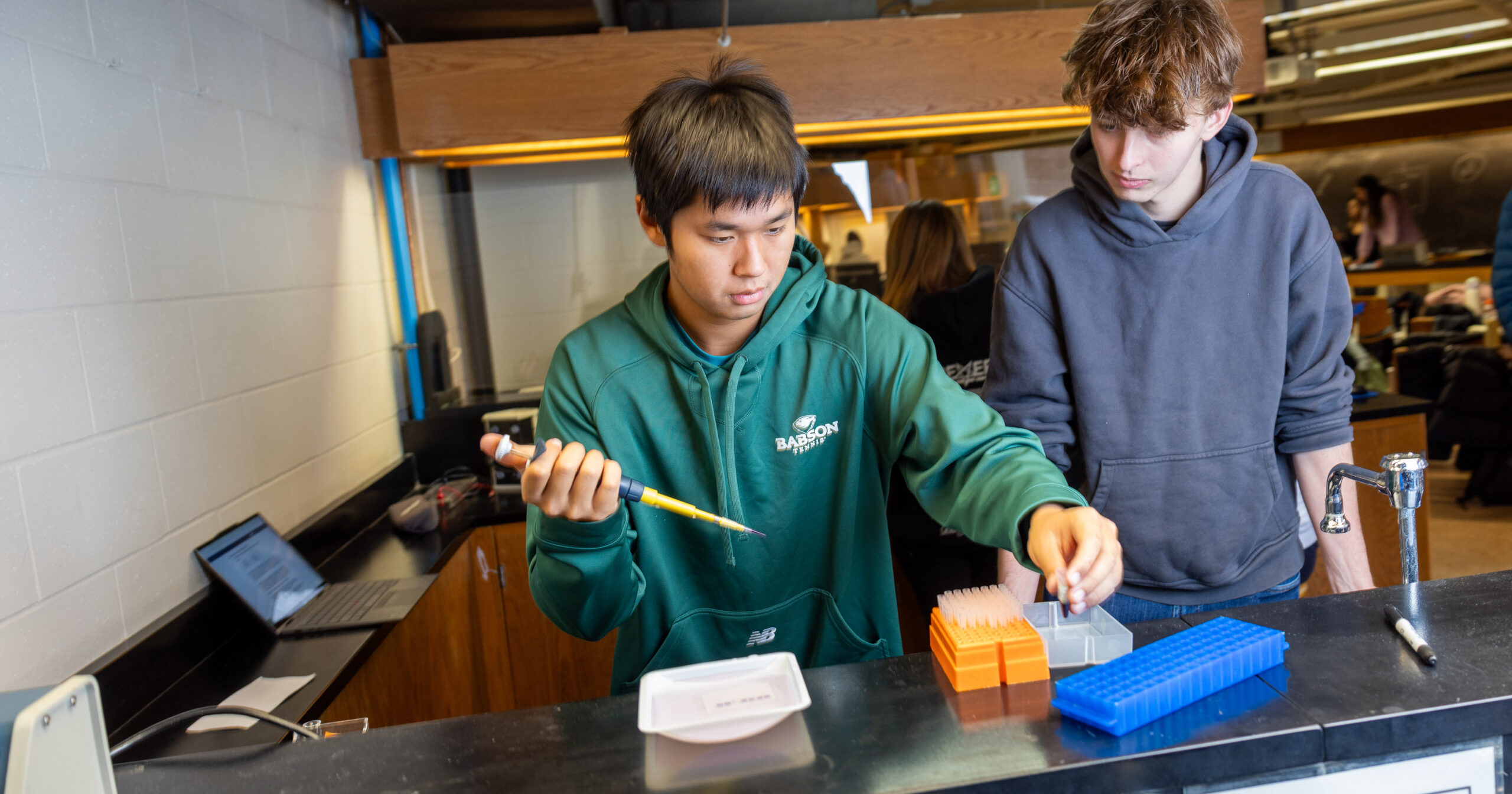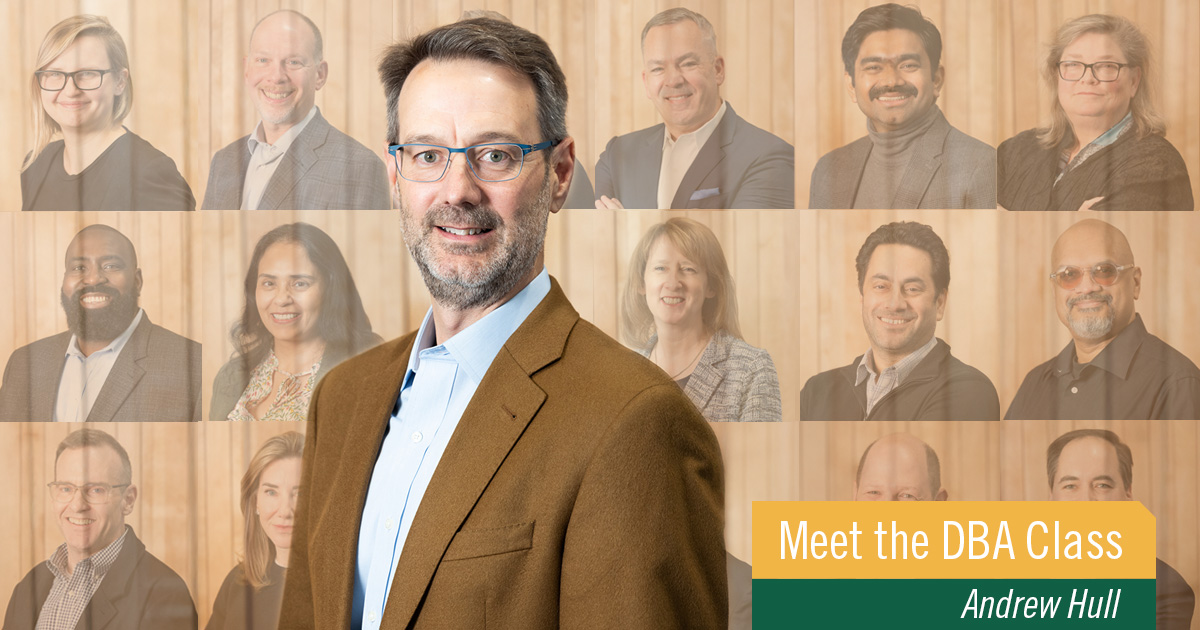‘There’s Still So Much I Want to Do’: Babson Entrepreneur Battles Kidney Failure
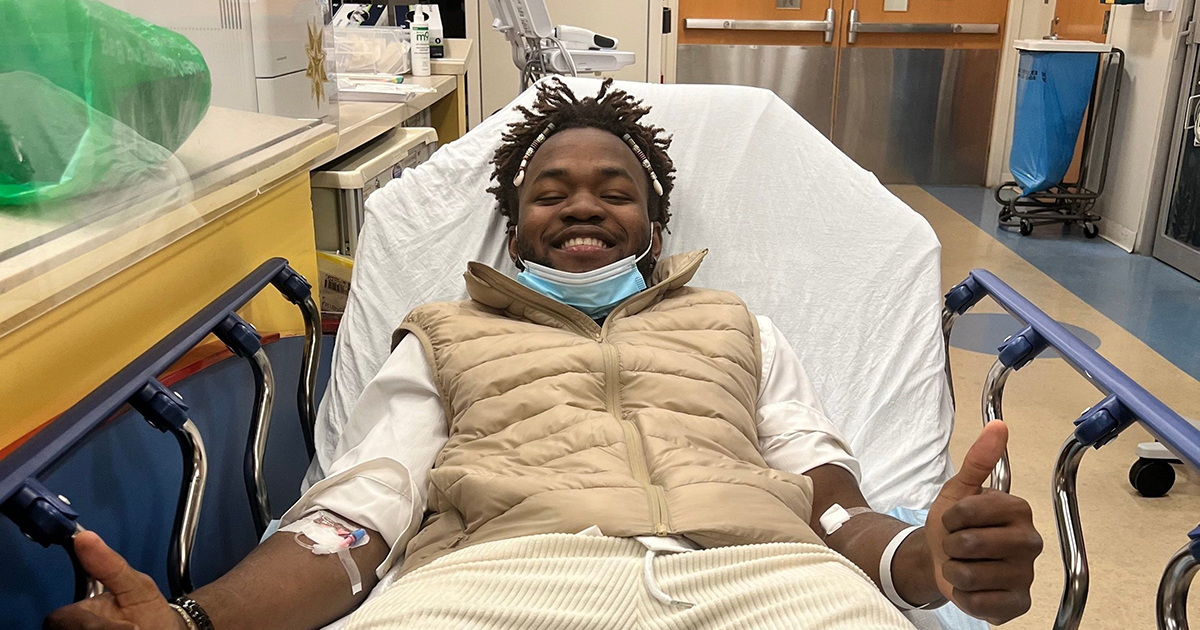
It started as a headache.
Babson College undergraduate student Thomas Thermidor had been thriving as he sailed toward his 2025 graduation date, applying to internships, and hustling through classes with the same energy and ambition he brought with him from Haiti more than a decade ago. Then, in January 2024, what had been an unusual fog of fatigue paired with a series of headaches turned into something far more serious.
“I thought I was just tired from school,” Thermidor said. “I was taking a full course load, working on case studies in my favorite class, and trying to do everything at once. Then I got COVID, and suddenly, I couldn’t breathe.”
What he thought might be stress-related migraines or the lingering effects of a virus turned out to be late-stage kidney failure. Within days, Thermidor was hospitalized. By the time he left the hospital a week later, he’d been told his kidneys were operating at just 11%. He would need to begin dialysis—and he would need a transplant to survive.
A New Reality
Thermidor, 22, had no history of chronic illness. Active, athletic, and deeply involved in campus life, the diagnosis hit hard.
“It didn’t feel real at first,” he said. “I got out of the hospital and the air felt different. The sunlight felt different. It was like I had to start my life over.”
But the reality of living with end-stage kidney disease set in quickly. Gone were the carefree routines of college life—he had to learn to cook low-sodium meals, track every ounce of fluid he consumed, and prepare for grueling 3½-hour dialysis sessions three times a week.
He also had to make the painful decision to scale back his academics. Once on track to graduate in 2025, Thermidor now takes two classes per semester and says he’ll likely need an extra year or more to complete his degree.
“It Challenges Me Mentally”
Though he’s surrounded by classmates preparing to launch careers in finance, impact investing, and entrepreneurship, Thermidor’s days are now structured around survival.
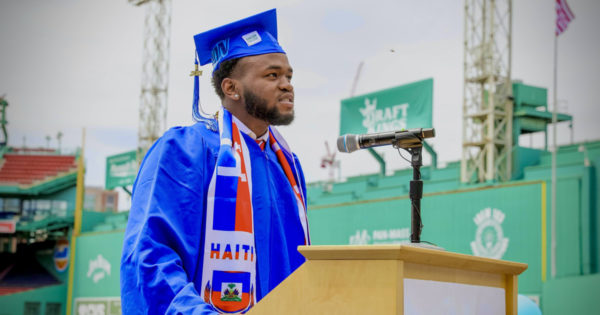
“Babson’s competitive spirit has consumed me ever since I was a freshman,” he said. “And as you can imagine, not being able to succeed really challenges me mentally. I talk to some of my classmates—many already have jobs lined up—and I have nothing to say. I just go to dialysis treatments.”
Thermidor’s battle hasn’t just been physical. The emotional and existential toll has been heavy. He described feeling isolated, not just because of his health, but because of his background. “I start to think, had I been born to a more fortunate family, would my struggles be real?” he said. “Maybe I would have already caught the disease before it took my kidneys.”
Still, he’s acutely aware of his own privilege, especially when it comes to access to treatment.
“There are millions of people who can’t get treatment for kidney failure,” he said. “If I were still in Haiti, it would be nearly impossible to get help. Political unrest, lack of infrastructure—it would’ve shattered my dreams.”
Entrepreneur, Interrupted
Like many hard-charging Babson students, Thermidor already had accomplished much before he stepped onto campus.
A superstar scholar at Boston English High School, he served as a peer mentor and represented the school on the Boston Student Advisory Council. During his senior year in 2020, he volunteered at the Covid Youth Commission—helping at food pantries, assembling COVID-19 care kits for homeless shelters, and crafting a social media platform where teens discussed mental health.
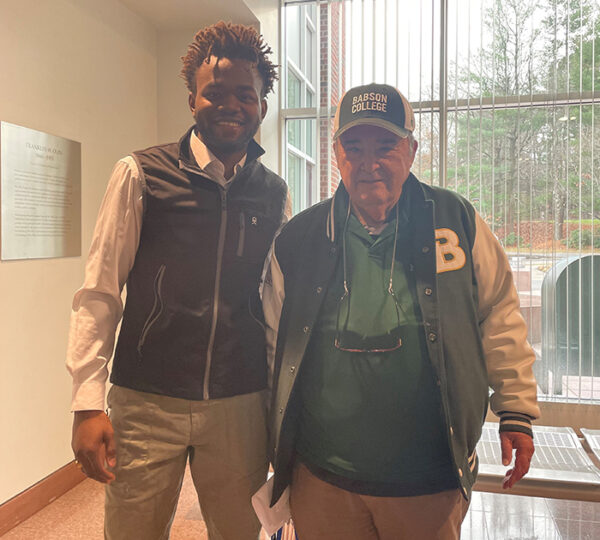
The hardships Thermidor experienced and witnessed around him—poverty and homelessness—is why he is so deeply committed to bridging socioeconomic divides, and it’s why he continued his outreach while attending Babson.
During his first year, he successfully campaigned for the funding to purchase sneakers for the English High School boys basketball team, which had been an important haven for Thermidor when he had attended. As the youngest member to serve on Boston English High School’s alumni association board, he focused on creating opportunities for students who were facing the same lack of resources he had faced. To that end, Thermidor created the Legacy program during his second year at Babson, which provided entrepreneurship education to low-income students who heard from real estate, nonprofit, and corporate leaders.
Thermidor also created Barber on Campus during his third year, a mobile barber shop offering quick, convenient haircuts to college students that was the talk of Babson’s competitive Rocket Pitch in 2023.
A Campus Rallies
In the face of so much uncertainty, Babson’s community stepped in.
Professors, classmates, and others connected to Babson reached out to support Thermidor.
“Truly, Babson saved my life,” he said. “Without the support from my friends, professors, and this community, I don’t know where I’d be.”
One of his professors, Len Green, introduced him to a friend who had been through kidney failure himself. “It gave me someone to talk to, someone who understood. That meant the world,” Thermidor said.
Much of Thermidor’s strength, he said, comes from his girlfriend, Cassidy Collins ’25. They met on campus, and she stayed by his side throughout his hospital stay, managed medical logistics, and committed to the same strict diet to support him.
“Truly, Babson saved my life. Without the support from my friends, professors, and this community, I don’t know where I’d be.”
Thomas Thermidor
Collins’ help, he said, keeps him grounded when despair creeps in. “I told her, ‘I don’t know if I want to keep going.’ And she said, ‘Do it for me, for your future kids. Just take it one day at a time.’ ”
Waiting and Hoping
Thermidor’s brother was initially evaluated as a potential donor but turned out not to be a match. A colleague of his brother’s has since volunteered to be tested. For now, Thermidor waits.
“I don’t ask people to donate their kidney,” he said. “That has to come from them. I just share my story and hope someone feels moved enough to help.”
In the meantime, he’s keeping up with his classes—Utopia and Dystopia, and Strategic Problem Solving—and hoping to land a summer internship to continue gaining experience.
“There’s still so much I want to do,” he said. “I just want a normal life again.”
LEARN MORE ABOUT Thomas Thermidor’s battle with kidney disease.
Posted in Community


